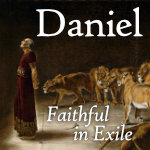Road ahead closed
Here’s a question for all you drivers out there… what do you do when you see one of these?
You know what it means… I hope! But do you ignore what it says?
Last year when the building work behind the bungalows next door to the vicarage began, we had one of these outside our house.
I cannot tell you the number of people who drove right round it – and then found that, surprise surprise, the road ahead was closed…! One evening I actually went out and moved it so it was right in the middle of the road – a van literally mounted the pavement to drive round it – and then of course he had to mount the pavement again to get back when he realised… the road ahead was closed.
Of course it’s a silly example. But how good are you at responding to warning signs – whatever they might be about – your health, your life, your relationships, your faith? Or do you carry on regardless – and then get stuck?
The truth is: knowing is not enough. It’s no good being able to read the words of this sign if you ignore them. It might as well be three random words written in Aramaic on a palace wall.
Belshazzar had many warnings, in particular the humbling of his predecessor Nebuchadnezzar that we heard about last week. The problem was, he didn’t listen, he ignored the warnings, he refused to learn the lesson: that the Most High God is sovereign over all kingdoms and sets over them anyone he wishes (21).
You should remember those words from last week. It is the lesson Nebuchadnezzar learned – eventually – and it is the lesson that Belshazzar refused to learn – to his cost.
My great-grandfather kept telling people that the Titanic was going to sink. But everyone either ignored him or told him to keep his mouth shut. Eventually they called security and had him thrown out of the cinema.
Belshazzar (1-4)
In Daniel chapter 5 we skip ahead several years – at least 25 years in fact – after chapter 4. Nebuchadnezzar is dead, and Daniel has apparently fallen from favour. The king is Belshazzar (1).
Belshazzar had a fairly complicated route to the throne. We don’t have complete records, but Nebuchadnezzar died in 562bc and was succeeded by his son Evil-Merodach, who reigned for a year or so before being assassinated by his brother-in-law Neriglissar.
Neriglissar ruled for four years before being succeeded by his son Labash-Marduk. Within a month he was killed by conspirators and Nabonidus – Belshazzar’s father – was installed as king. He went off the rails, and after a major argument with the priests, he ended up being ‘relocated’ to an oasis 500 miles from Babylon. And so Belshazzar his son ruled from 553 to 539bc.[1]
Six kings in under ten years – Babylon got through kings like Premier League football clubs get through managers.
So, when we hear Nebuchadnezzar referred to as Belshazzar’s ‘father’ (11, 18, 22) – it’s not in the literal sense but in the figurative sense that Belshazzar was Nebuchadnezzar’s successor.
Chapter 5 then begins with Belshazzar throwing a mighty feast for a thousand of his nobles (1), and all his wives and his concubines (2, 3). He was pretty pleased with himself. As a city, Babylon was impregnable, with its high and multi-walled defences. At least, it was as impregnable as the Titanic was unsinkable – that is, only in the arrogant minds of its creators.
At the height of the feast, Belshazzar ordered his servants to bring the gold and silver goblets that had been taken from Jerusalem by Nebuchadnezzar (2), and with them he drank wine and praised the gods of gold and silver, of bronze, iron, wood and stone (4).
Belshazzar mocked the Most High God, the only one who could save him, and instead praised the so-called ‘gods’ who could do nothing to rescue him from Cyrus king of Persia.
The writing on the wall (5-28)
Here’s some graffiti I found online. ‘Things I hate: 1. vandalism; 2. lists; 3. irony; 4. lists; 5. repetition; f. inconsistency.’
This writing on this wall was a bit more serious than that.
Although the way the story is told is meant to make us laugh – has anyone in the history of drunken kings sobered up more quickly than Belshazzar? He went from joking about God to becoming a joke himself: his face turned pale and he was so frightened that his legs became weak and his knees were knocking (6).
This king is a joke, the writer says – but so are his advisors. Once again the enchanters, astrologers and diviners – the king’s wise men – were summoned (7), and once again they were clueless (8). Pagan religion was useless in chapter 1, useless in chapter 2, useless in chapter 3, useless in chapter 4, and – surprise, surprise – it’s useless again in chapter 5. At this, the so-called ‘king’ Belshazzar became even more terrified and his face grew more pale (9).
The queen, the king’s mother heard the commotion and came into the banquet hall (10); the writer mocks the king again through the queen’s words: ‘Don’t look so pale!’ she says. What a dweeb (!), the writer wants us to think.
She reminded her son about Daniel (11-12) who had true insight and intelligence and wisdom, things the ‘king’ sorely needed.
And so, Daniel was summoned – and then mocked by the pale-faced king. I don’t know about you but I can see all the nobles sniggering into their goblets as Belshazzar sneered (13), ‘Are you Daniel, one of the exiles my father the king brought from Judah?’
First he mocked the only God who could save him, then he demeaned the only one who could advise him, then he made one of the most meaningless offers in the history of useless gifts: to be the third highest ruler in the kingdom (16) – does that sound good? Within hours Belshazzar’s kingdom would no longer exist.
No wonder Daniel said, ‘You may keep your gifts for yourself and give your rewards to someone else’ (17)… ouch!
Next, Daniel reminded him what happened to Nebuchadnezzar, how he was driven away from people and lived with the wild donkeys – literally making an ass of himself – until he learned this lesson: the Most High God is sovereign over all kingdoms on earth and sets over them anyone he wishes (21).
That was the lesson Nebuchadnezzar learned and that is the lesson Belshazzar had not.
However, Daniel was not finished.
‘But you, Belshazzar… have not humbled yourself, though you knew all this. Instead, you have set yourself up against the Lord of heaven… you did not honour the God who holds in his hand your life and all your ways.’
Daniel 5.22-24 (NIV)
Friends, knowing is not enough: ‘you knew all this,’ Daniel said. But, he ignored it: knowledge is useless, wisdom is useless, truth is useless – unless it makes a difference in us, unless we act on it. Otherwise we’re no better than the van driver who mounted the kerb outside the vicarage to avoid the ‘road ahead closed’ sign.
The writing was on the wall for Belshazzar, and it was four words: mene, mene, tekel, parsin.
‘Here is what these words mean:
Daniel 5.25-28 (NIV)
Mene: God has numbered the days of your reign
and brought it to an end.
Tekel: You have been weighed on the scales
and found wanting.
Peres: Your kingdom is divided
and given to the Medes and Persians.’
Excuse my Aramaic pronunciation. The words meant numbered, numbered, weighed, divided.
The end (29-31)
It didn’t take long for Daniel’s words to come true. For a few short hours he was the third highest ruler in the kingdom (29) – but that very night (30) the Persian army broke through the so-called impregnable defensive walls of Babylon, and the best defended city in the world was overrun.
We think the Persians dug a canal to divert the river Euphrates into a basin, lowering the water level of the river, so the Persian commandos could wade through the city, get under the walls, and mount a surprise attack – while the king of Babylon feasted.[2]
Belshazzar was slain (30), and Darius the Mede took over the kingdom (31). Thus were fulfilled the words of Daniel sixty years earlier, when he explained Nebuchadnezzar’s dream of the statue.
The Babylonians had captured, brutalised, brainwashed, mocked God’s servants – but who was left standing when the Babylonian empire fell? Daniel, the servant of God. Remember the dynamite words of chapter 1? And Daniel remained (1.21).
Why? Because no matter what human kings and queens and emperors might think, the Most High God is sovereign over all kingdoms on earth and sets over them anyone he wishes. He’s in charge, and no-one else.
Knowing is not enough
The problem these kings had was not ignorance, it was insolence.[3] Knowing is not enough.
The truth that God Most High is, well, most high, and sovereign – that is a tremendous truth… if you want to serve him, for he is the firm foundation on which we stand and never fall: Daniel remained. For those who serve God it is a tremendous truth. But it is a terrible truth for those who try to take his place.
We have now had the same lesson three weeks in a row: the Most High God is sovereign over all. That includes you.
I wonder what bits of your life you like to keep back for yourself, what bits of your life and character you like to pretend you don’t need to change? The anger? The grumpiness? The greed? The envy? The self-centredness? The gossip? The laziness? The desire? The pride? Friends, the Most High God is sovereign over all. ‘All’ means all! Everything!
Are you willing to turn away from the sin you like to nurture, to stop telling yourself you ‘can’t help it’ or ‘it’s just who I am’? Don’t go pretending other people need it more than you!
Knowing is not enough – we must turn our back on the ways of the world and be transformed and renewed by the Spirit:
I urge you, brothers and sisters, in view of God’s mercy: offer your bodies as a living sacrifice – this is true and proper worship. Do not conform to the pattern of this world, but be transformed by the renewing of your mind.
Romans 12.1-2 (NIV, abridged)
The Most High God is sovereign over all – may we not only know that, but live it.
Notes
[1] Dale Ralph Davis, The Message of Daniel (BST) (Nottingham: IVP, 2013), 70-71.
[2] Davis, Daniel, 73.
[3] Davis, Daniel, 79.


